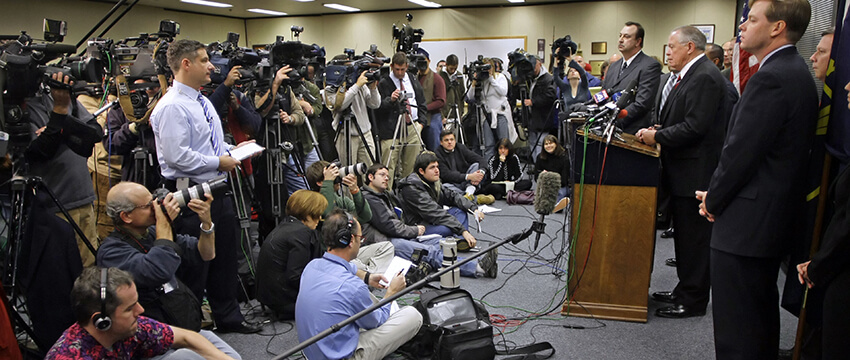Yo-yo Ma. Kris Bryant. Taylor Swift. LeBron James. Denzel Washington.
What do these individuals have in common?
They have each reached the heights of their careers, yet they still practice and rehearse. They know if they are to remain polished and at the top, they can’t rest on their laurels.
The same is true for spokespeople. If you were media trained years ago, wonderful. It doesn’t mean you’ll nail your first interview in two years if you haven’t continued to hone your craft. Furthermore, just because a CEO is a great conversationalist doesn’t mean he or she will excel at media interviews.
Over the past decade, I have media trained CEOs, political leaders and public figures for hard-hitting interviews, primetime debates and crisis management. Yet, before I start any media training, I almost always get the following three questions:
Do I really need media training?
Yes. A media interview is completely different from any interaction you’ll have in your business or personal life. Media interviews are often counterintuitive. For example, you may think you’re just having a conversation with the journalist. However, you’re actually giving an interactive presentation. And, if you have done media interviews without training, it’s likely you didn’t get the most out of your opportunity.
Additionally, in today’s world where anyone with a phone can be a journalist, it’s important to consider educating all of your employees about the media, their tactics and the implication of even a few, ill-chosen words.
What are the benefits of media training?
As I see it, there are three benefits of media training. Did you see what I did there? I used flagging to ensure you are listening for the three benefits.
- You’ll learn about how the media works. Media training will change the way you watch and read the news and make you a more informed citizen and businessperson.
- You’ll have the tools to thrive in any media situation – from handling tough questions when responding to negative stories, to maximizing the impact of positive stories.
- You’ll be able to apply the skills you learn to non-media situations, such as, giving a presentation, doing a Town Hall meeting, or speaking with investors on an earnings call.
What can I expect during a media training?
You can expect to feel better and more at ease with media interviews at the end of the training than you were at the beginning. This is because we’ll run you through a variety of mock interviews with a range of questions from simple and easy to challenging and complex. The goal of a media training should not be to beat up on the spokesperson, but to help him or her feel more empowered.
You can expect to learn about the techniques that effective spokespeople employ on the news every day.
You can expect to explore what it’s like to work with media today. For instance, over the past few years the nature of relationships between CEOs and/or spokespeople and the media has become more combative. Media training will help you effectively answer tough questions.
You can expect to be trained for all media settings – print, radio and broadcast. And, even within broadcast you may have a satellite interview that is different than an interview at a news desk or a stand-up interview with a video camera in your face on the steps of your company’s headquarters.
You can expect us to focus heavily on nonverbal communication and body language in addition to Q&A technique.
You can expect to have some fun. Yes, you’ll get some hard questions, but in a completely safe environment. The media training will be a positive experience and you’ll learn to approach interviews with the same positive mind set.
Now that you’re convinced to get media trained, you understand the benefits and you’ve set your expectations, you can join the ranks of Denzel, Bryant and Taylor. But, to stay there you’ll need to keep honing your craft. If you don’t use it, you’ll lose it!
